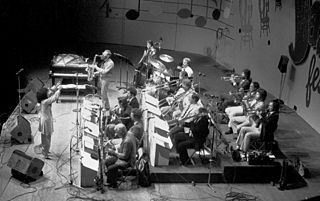
Kogun is the first album recorded by the Los Angeles-based Toshiko Akiyoshi – Lew Tabackin Big Band. It was released in Japan by Victor in 1974 and received the Swing Journal Silver Disk prize for that year. It was later released on RCA Victor in the USA and elsewhere and received a 1979 Grammy nomination for Best Jazz Instrumental Performance by a Big Band.
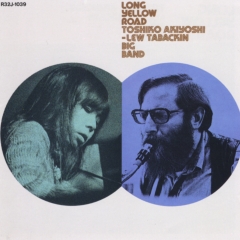
Long Yellow Road is the second album by the Toshiko Akiyoshi – Lew Tabackin Big Band. It was named Best Jazz Album of the year by Stereo Review magazine. In 1976, the album received a Grammy Award nomination for Best Jazz Performance by a Big Band.

Tales of a Courtesan (Oirantan) is the third recording of the Toshiko Akiyoshi – Lew Tabackin Big Band. It is also sometimes referred to by the title HANA KAI TAN in rōmaji listings of the Japanese album title.

From Toshiko With Love is the twelfth recording released by the Toshiko Akiyoshi – Lew Tabackin Big Band. It was released in Japan by Victor Records and in the U.S. by Jazz America Marketing – not to be confused with the 2002 Lew Tabackin Trio recording of the same name (Tanuki's Night Out). The album received two Grammy award nominations in 1981 for "Best Jazz Instrumental Performance - Big Band" and "Best Arrangement of an Instrumental Recording".

Road Time was the first live concert recording of the Toshiko Akiyoshi – Lew Tabackin Big Band. The recording was made at three concerts in Tōkyō and Ōsaka, during a 1976 Japan tour and the double album received a 1977 Grammy nomination in the "Best Jazz Performance - Big Band" category.

Insights is the fourth studio recording of the Toshiko Akiyoshi – Lew Tabackin Big Band and was voted "Jazz Album of the Year" in the 1978 Down Beat magazine critic's poll. It received the Swing Journal magazine 1976 Gold Disk prize in Japan and was nominated for a 1978 Grammy award in the USA for Best Jazz Instrumental Performance by a Big Band.

March of the Tadpoles was the fifth studio recording of the Toshiko Akiyoshi – Lew Tabackin Big Band. The album was released in Japan in 1977 by Baystate. The album received two 1985 Grammy award nominations – for "Best Jazz Instrumental Performance - Big Band" and for "Best Arrangement on an Instrumental".
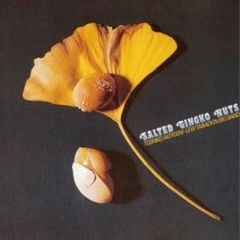
Salted Gingko Nuts [sic] is the sixth studio album released by the Toshiko Akiyoshi – Lew Tabackin Big Band. It is also known by the Japanese title, SHIO GIN NAN. The album received the 1979 Silver Disk award from Japan's Swing Journal magazine.
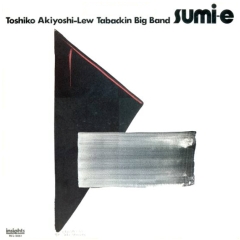
Sumi-e was the seventh studio recording released by the Toshiko Akiyoshi – Lew Tabackin Big Band. Not to be confused with the 1971 Toshiko Akiyoshi Quartet release, Sumie / The Personal Aspect in Jazz. Sumi-e refers to an East Asian style of brush painting.

Farewell is the eighth studio recording released by the Toshiko Akiyoshi – Lew Tabackin Big Band. The album received a 1980 Grammy award nomination for "Best Jazz Instrumental Performance - Big Band."

European Memoirs is the tenth studio recording of the Toshiko Akiyoshi – Lew Tabackin Big Band. Akiyoshi was nominated for a 1983 Grammy award in the Best Instrumental Arrangement category for the arrangement of "Remembering Bud" on this album. This would be the final recording of the Los Angeles-based Toshiko Akiyoshi – Lew Tabackin Big Band before the principals moved to New York City in 1982 and formed a new big band, the "Toshiko Akiyoshi Jazz Orchestra featuring Lew Tabackin" that released nine more albums and two live performance videos before disbanding in 2003.

Ten Gallon Shuffle is the first recording released by the New York-based Toshiko Akiyoshi Jazz Orchestra featuring Lew Tabackin. The composition Ten Gallon Shuffle was originally commissioned by Phi Mu Alpha Sinfonia Music Fraternity for the University of Texas Jazz Orchestra.

Wishing Peace is the second recording released by the New York-based Toshiko Akiyoshi Jazz Orchestra featuring Lew Tabackin after 13 previous releases with their Los Angeles-based Toshiko Akiyoshi – Lew Tabackin Big Band. "Lady Liberty", "Wishing Peace" and "Uptown Stroll" form the three part "Liberty Suite" written on the occasion of the 100th anniversary of the Statue of Liberty.

Tribute to Duke Ellington is a big band jazz album recorded in New York in 1999 and is the seventh recording released by the Toshiko Akiyoshi Jazz Orchestra featuring Lew Tabackin. The first three tracks make up the "Tribute To Duke Ellington Suite" which was composed by Akiyoshi and commissioned by the Monterey Jazz Festival.

The jazz big band album Hiroshima - Rising From The Abyss is the eighth audio recording released by the Toshiko Akiyoshi Jazz Orchestra featuring Lew Tabackin. It was released in 2001 by Video Arts Music in Japan and True Life in the USA. Tracks 2-7 form the "Hiroshima - Rising From The Abyss" Suite.

Last Live in Blue Note Tokyo is the ninth recording released by the New York-based Toshiko Akiyoshi Jazz Orchestra featuring Lew Tabackin. Not to be confused with the 1997 Toshiko Akiyoshi Trio release, Live at Blue Note Tokyo '97.

My Elegy is a concert video recording of the Toshiko Akiyoshi Jazz Orchestra featuring Lew Tabackin. It was released in Japan in 1984 by LaserDisc Corp. as a LaserVision video disk.

The Toshiko Akiyoshi Jazz Orchestra: Strive for Jive is a live video recording of the Toshiko Akiyoshi Jazz Orchestra featuring Lew Tabackin in a jazz club setting. The video was apparently recorded in the mid 1980s in Chicago and first released on VHS video tape around 1993 and on DVD in 2009.
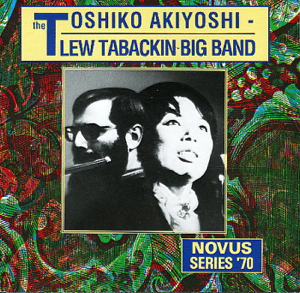
The Toshiko Akiyoshi – Lew Tabackin Big Band, Novus Series '70 is a compilation album of songs taken from the band's early RCA releases of 1974~1976.

